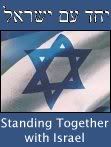Rebuilding Out of the Rubble
February 25, 2005
Last week, a team from Jubilee Campaign traveled to the Maluku Islands of Indonesia to visit the Caleb Chandler House, a residential facility for children orphaned during the religious violence that rocked Maluku Province for nearly three years, from 1999 to 2001. Jubilee Campaign has conducted a sponsorship program for a number of years to provide housing, food, education and spiritual and emotional nurture to the orphans. In the following report, Jubilee Director Ann Buwalda offers her reflections on the history of the place and her hopes for the future of the residents of Caleb House and the Christian village of Waii.
The attacks lasted from January 23, 1999, through August 2001 in the village of Waii, Indonesia. The attackers, members of the Laskar Jihad, wore white, including white turbans. Those attacked were decapitated and mutilated beyond belief, even the elderly and women. One pastor tearfully beseeched us as visitors to help him understand how he could possible counsel his flock in the wake of such horrors.
In January 2002, a Jubilee Campaign team visited Ambon Island, in the Maluku Province of Indonesia. Ambon was one of the pivotal areas in the conflict between Muslim and Christian communities that lasted four pa inful years. We had visited a refugee camp located near Passo Village, to which all the surviving villagers from Waii had fled. Waii villagers in that camp told us that the Islamic militant group Laskar Jihad had attacked Waii forty times, escalating to the use of military weaponry before the villagers finally gave up and fled on foot across a mountain range to the Christian area in Passo.
During a meeting in that area with twenty bupatis, these pastors and Christian village leaders poured out their grief and fears to us as they recounted the horrors of random attacks, butchered bodies of friends and relatives and lack of military or police protection. Both were suspected of taking sides against them, particularly because military weaponry had been used during the attacks and because the attackers were never apprehended, even when there was advance notice of the attack and when military barracks were close by. Thus, at the time of that visit, Laskar Jihad persisted, an estimated 10,000 militants in the Maluku Islands lived within entrenched terrorist training camps and prospects for the Waii villagers appeared bleak.







